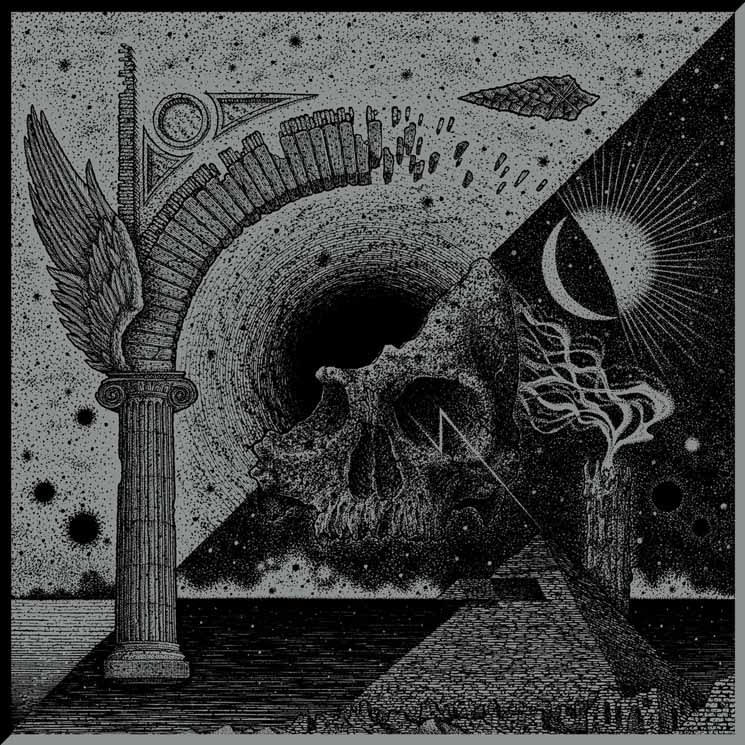The Secret have been blackening their sound since their beginning as a darkly chaotic metalcore band. Through two albums in that style, they were apparently turning up the burner, so that the two that followed — 2010's Solve et Coagula and 2012's Agnus Dei — had a nice blackened crust forming and attempting to contain their fury. Six years and some inter-band friction later, that crust has fallen off for return EP, Lux Tenebris, revealing a much more raw black metal interior.
On the surface, it might appear little has changed — the band continue with their Latin title motif and the skull in the middle of its art could have been plucked from the catacombs-esque cover of Agnus Dei — but a deeper understanding will reveal the subtle changes that shaped the release. It's not the skull on the cover that exemplifies the sound, rather its inverse void.
Like that illustration, the music here swirls. Where previous albums from the Italian quartet opted more often than not for constant forward motion, this time around they lock into certain parts and embrace repetition. Opener "Vertigo" lulls the listener into a false sense of security, though its ominous nature leaves one with that nagging worry that it's unsafe to do so. Those fears prove to be well-founded on followup tracks "The Sorrowful Void" and "Cupio Dissolvi," which blaze forward with blast beats and black metal brashness.
There's a push and pull with these songs, though, where they slip into and out of entrancing hypnotic passages, while previous experiments with slower songwriting were often sectioned off into their own tracks — see "Cross Builder" and "Heretic Temple."
By embracing longer songs and allowing them to mutate in addition to mutilate, the Secret have emerged from their dormancy with a life-affirming release that continues their evolution in fashions both sensible and sinister.
(Southern Lord)On the surface, it might appear little has changed — the band continue with their Latin title motif and the skull in the middle of its art could have been plucked from the catacombs-esque cover of Agnus Dei — but a deeper understanding will reveal the subtle changes that shaped the release. It's not the skull on the cover that exemplifies the sound, rather its inverse void.
Like that illustration, the music here swirls. Where previous albums from the Italian quartet opted more often than not for constant forward motion, this time around they lock into certain parts and embrace repetition. Opener "Vertigo" lulls the listener into a false sense of security, though its ominous nature leaves one with that nagging worry that it's unsafe to do so. Those fears prove to be well-founded on followup tracks "The Sorrowful Void" and "Cupio Dissolvi," which blaze forward with blast beats and black metal brashness.
There's a push and pull with these songs, though, where they slip into and out of entrancing hypnotic passages, while previous experiments with slower songwriting were often sectioned off into their own tracks — see "Cross Builder" and "Heretic Temple."
By embracing longer songs and allowing them to mutate in addition to mutilate, the Secret have emerged from their dormancy with a life-affirming release that continues their evolution in fashions both sensible and sinister.
